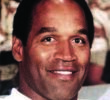Social isolation is a major health concern in the elderly
By Dr. Veita Bland / November 30, 2018
Studies show that social isolation is the most well established social risk factor for poor health and premature death among the elderly.
In a recent study published in the American Journal of Epidemiology, the effects of social isolation on the health of individuals were examined. This was a long term (30-year) study that followed more than 580,000 individuals from 1982 through 2012. In the beginning of the study people were assessed for their degree of social isolation. They were asked if they were married. The number of close relatives and friends was assessed. The researchers wanted to know if these participants attended church or temple and if so, how frequently. They also asked whether study participants belonged to clubs or groups and their participation in them was noted.
Dr. Kassandra Alcaraz of the American Cancer Society in Atlanta stated, “Social isolation is our most well established social risk factor for poor health and premature death, in fact, it’s been called the “new smoking” in terms of its potential impact on the future of public health.”
The scientists found that social isolation was associated with an increase in inflammation, a decrease in the ability to think well, an increase in hypertension and a decrease in the body’s ability to fight off germs and viruses. There was an increase in cardiovascular illnesses. All of these factors can result in an increase in premature death.
Researchers also found that being unmarried results in a 17 percent increase in all causes of death and a 25 percent increase in heart disease.
There was great concern for younger people who may not be developing the skills needed to maintain socially significant relationships due to their excessive use of social media. How this will affect them in the course of their lives is of concern. In addition, many people now work from home and do not socially interact with others. There are definite pluses and minus to those arrangements.
No man is an island, nor should he (or she) be an island. We are indeed social beings with biological needs to be connected with others. If you see others who are socially isolated try to involve them in activities. This study noted that healthcare providers may not be in a position to know whether a patient is experiencing social isolation, which makes it hard for healthcare providers to address. We need patients to tell their stories so we can try to take steps to improve their social interactions and lives.
Dr. Veita Bland is a board-certified Greensboro physician and hypertension specialist. Dr. Bland’s radio show, “It’s a Matter of Your Health,” can be heard live on Wednesdays, 5:30 p.m. on N.C. A&T State University’s WNAA, 90.1 FM. Listeners may call in and ask questions. The show is replayed on Sirius 142 at 5 p.m. on Wednesdays.
Email Dr. Bland at ideas@blandclinicpa.com.







